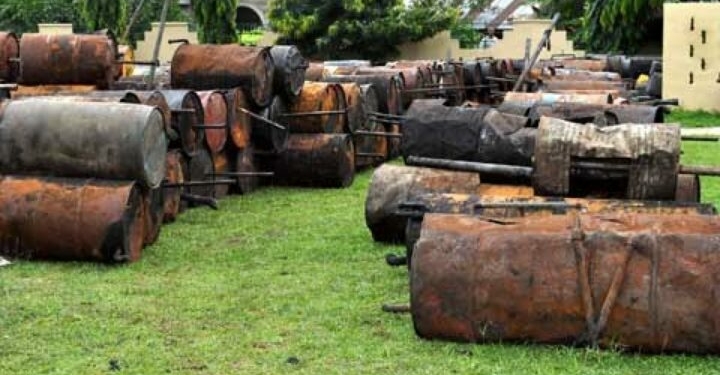The Nigerian Association of Chambers of Commerce, Industry, Mines and Agriculture (NACCIMA) has implored the federal government to use a certificate of origin (CoO) to combat the sale of stolen crude oil in the international market.
This was made known by the national president of NACCIMA, John Udeagbala at a recent press briefing.
Udeagbala said the issuance of the CoO is the ultimate step Nigeria must take to address the crude oil theft to increase its public revenues.
“If the oil export in Nigeria should be done in a way it is meant to be done, there must be certification with the issuing of Certificate of Origin, which means that this oil is actually Nigerian oil. And no buyer can buy crude oil without this certificate,” he said.
Udeagbala argued that the right to issue the certificate should be domiciled with the NACCIMA, especially since it is the chambers of commerce all over the world that certified export products.
He added that government must take decisive action to increase its revenue in the face of rising public debt.
“That is a possibility that is domiciled with chambers of commerce all over the world. We are trying now to engage the Nigerian National Petroleum Corporation (NNPC) to understand who issues this CoO to them. This is one step that we must follow to increase our revenues. So that when the oil pipeline is broken, those stealing the oil cannot go anywhere to sell it. I want special attention to be paid to this,” he said.
“If the government cannot reduce its cost, then it must increase its earnings. The new kid in town is crude oil stealing. But is it difficult to control crude oil theft? Government must have the political will. NACCIMA is the agency as it is the chambers of commerce, which issue what we call Certificate of Origin, which validates products from every country.
“How is the NNPC managing to validate the country’s oil, and where is it getting its own Certificate of Origin? Recall that when Sierra Leone was faced with the challenge of ‘blood diamond,’ there was certification, and once it came into the London market, the whole stealing stopped.”
Udeagbala further described the CoO as an important international trade document that confirms that “the goods in a particular shipment have been wholly obtained, produced, manufactured or processed in a particular country.”
He also called for the privatisation of the country’s poorly run petrol refineries, arguing that the concept of turnaround maintenance of refineries is peculiar to Nigeria and not obtainable in any other country.










Discussion about this post